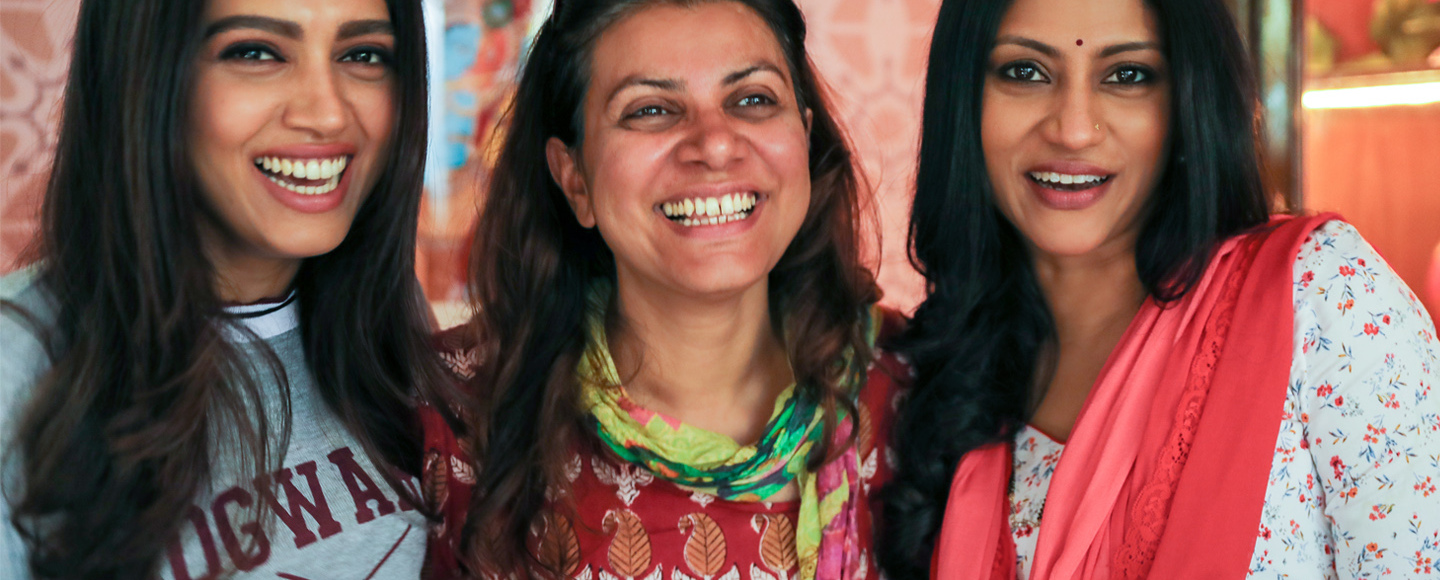MUMBAI : Filmmaker Alankrita Shrivastava says there is a great parallel between the two titular protagonists of “Dolly Kitty Aur Woh Chamakte Sitare” and the suburban city of Greater Noida as they both are “work in progress”.
In an interview, Shrivastava shared that the genesis of the story began with her trips to Greater Noida with her Noida-based mother, who had invested in a property in the city.
The filmmaker said the city, which is an extension of Noida and fast emerging as city of promises, mirrors the journey of the film’s two women protagonists.
Her mother would tell the filmmaker about the dizzying heights the city was poised to reach but Shrivastava could never see it translate in reality.
“She would start talking how an airport is coming and the place is developing. But nothing would happen there. It always had construction which never finished.
“Then I started thinking about women who must be coming here with dreams and hope, who’d tell their parents they’re going to Delhi but they are actually in the outskirts. They think they have come to the city but it isn’t as kind and easy to navigate as we think.”
Featuring Konkona Sen Sharma and Bhumi Pednekar as two Greater Noida-based cousins Dolly and Kitty respectively, the film follows their lives as they navigate their rise, fall, missteps and unlearning, eventually enabling each other to find freedom.
Shrivastava describes Dolly and Kitty as “works in progress” who slowly but steadily find themselves.
“When we begin the film, they don’t know where they’re going or what they want. It’s a process of self discovery. I felt the metaphor of Greater Noida, the city in constant making, a work in progress, not yet found itself, is a nice setting to explore the lives of these two characters,” she said.
Kitty was the first character the director conceived as she thought about all the young girls coming to the city to work in call centres.
“I thought if Kitty is coming, she must be staying with someone and I thought she’d stay with her cousin. That’s how Dolly came in and then I started to think about her world. That’s how it emerged. It was always just these two central characters.”
“Dolly Kitty Aur Woh Chamakte Sitare” is also peppered with layered male characters. There’s Amol Parashar’s Muslim delivery boy Osmaan Ansari, who gets attracted towards Dolly, while her husband Amit Yadav (played by Aamir Bashir) seeks sexual pleasure outside the marriage.
Shrivastava said the decisions and lives of all the characters were rooted in the real world.
“If Dolly and her husband have invested in a house, of course that house isn’t going to be ready because that’s the situation in Noida and Greater Noida.
“If there’s a delivery boy, it’s bound to be that he’s going to suffer casual violence on the road because that’s the reality of being a young Muslim boy in that area, or if you’re Kitty walking down the road, you’re going to be eve teased by people in busses that are passing by.”
The director said she wanted to truthfully represent the lived reality of people in the country, who continue to face violence and moral policing.
“I never thought of Osmaan as just a delivery boy with no identity. He came on my head as this young Muslim boy who’s trying to make a life for himself but it is difficult in these times.
“Even the concept of Romeo police… You can’t live without having brushes with all of this in the city. For me it was the truth of their lives, the place.”
Produced by Ekta Kapoor and Shobha Kapoor, the film is Shrivastava’s follow-up to her acclaimed 2017 film, “Lipstick Under My Burkha”.
Shrivastava’s continued attempts to chronicle women-led stories often don’t find takers and the filmmaker lamented that there aren’t many brave producers championing such stories. “I’m grateful to Ekta. She put her weight behind ‘Lipstick…’ so the film could release. I didn’t have a distributor and was struggling for really long for someone to release that film.
“Even with ‘Dolly Kitty…’, she was so encouraging. It was not difficult to mount the film because I had her support. I feel we need more brave producers. Films need money, you can’t make them in isolation,” she added.
The film recently released on Netflix. (AGENCIES)
Trending Now
E-Paper


